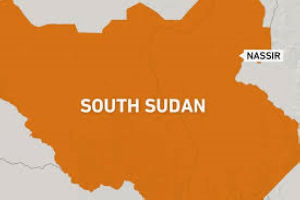The Bank of Ghana (BoG) has said this week’s US$1.5billion loan deal between Cocobod and a syndicate of 13 local and international banks will boost its foreign exchange reserves and provide support for the cedi in the fourth quarter.
As happens in every production season, Cocobod will sell the dollars to the BoG in exchange for cedis to purchase cocoa beans from farmers.
The BoG has current reserves of US$4.2billion, enough to cover 2.4 months of imports -- short of its target of three months. Around this time last year, it had US$4.5billion in international reserves.
Dr. Henry K. Wampah, acting Governor of the bank, said at the regular briefing of the monetary-policy committee (MPC) on Wednesday that the fall in the reserves is partly due to the seasonality of inflows, but it has also been worsened by efforts to defend the weak cedi through increased foreign exchange operations.
Between January and August, the cedi fell by 18% against the US dollar, with 95% of the depreciation occurring in the first half of the year alone. The rapid depreciation, due to a stunning rise in demand for imports -- and the scarce foreign exchange used to pay for them -- dampened business and consumer confidence in the first half.
The monthly rate of depreciation has however slowed, from 5.9% in May to 0.3% in August, Dr. Wampah said.
“The measures we have implemented have yielded the expected positive results and some stability has been achieved on the exchange rate front,” he said, referring to strong interventions by the Central Bank -- comprising a combined 250 basis-point boost to the policy rate, increased sale of Treasuries and bonds, and the tweaking of banks’ reserve requirement rules -- to support the cedi. “The challenge is to sustain the stability that has been achieved so far.”
He said the BoG does not deem it appropriate at this time to reverse some of the rare policies it has adopted in the fight against the currency’s depreciation.
“We will continue monitoring the programme, and then if it is appropriate to review it we’ll do so -- but not at this time.”
The MPC, according to him, had decided to leave the policy rate unchanged at 15% -- given that “the risks to (the) inflation and growth outlook are fairly balanced.”
Before his announcement, the Ghana Statistical Service (GSS) had reported that headline inflation for August stabilised at 9.5%, the first time the rate has not gone up since March 2012.
“The pass-through effects of exchange rate depreciation appear to be muted, and there are positive indications that the impending harvest season will have a moderating effect on inflation in the next few months.”
Though inflation is now 0.9 percentage points above the rate in December last year, Dr. Wampah said the Central Bank’s forecast indicates that the rate will continue to remain within the target band at the end of the year.
On external sector developments, he said exports grew by 12.9% year-on-year in the first seven months of 2012 to US$8.4billion, fuelled by strong receipts from gold, cocoa beans, and crude oil
Imports paced faster however, registering year-on-year growth of 18.3% to US$10.4billion. As a result, the trade deficit widened from US$1.3billion a year ago to US$2billion in July. The current account deficit also worsened, to US$2.8billion from US$1billion, in the same period.
And in June the balance of payments recorded a deficit of US$2billion, but inflows from Cocobod’s loan and the recent sale of bonds to foreign investors look set to narrow the gap by year-end.
Business News of Wednesday, 19 September 2012
Source: thebftonline.com












